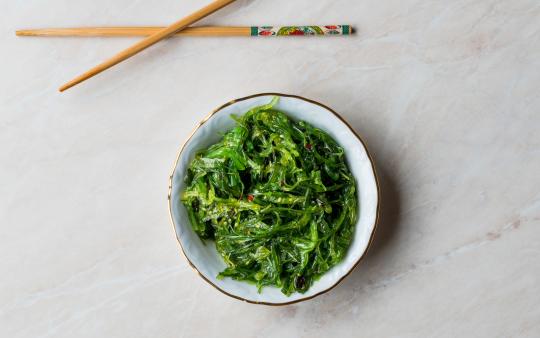There’s been a lot of buzz about iodine lately. From its purported therapeutic potential for conditions like breast and uterine fibroids, to its importance in maintaining healthy thyroid function, this little micronutrient has caused a big stir, specifically with regards to women’s health.
As we age, we begin to be more concerned with our hormones, and optimizing thyroid function becomes an important consideration. In order for our thyroid to work properly, our bodies must have access to iodine, an essential element that isn’t produced by the body and therefore must be acquired through other means — namely, food. Although there are a wide range of foods available that contain healthy amounts of iodine, a supplement is sometimes prescribed when the thyroid is found to be functioning less than optimally, oftentimes due to thyroid issues like iodine deficiency. It’s easy to assume, then, that adding a dose of iodine to your daily supplement routine can help ensure a healthy thyroid. But unlike water-soluble vitamins, you can’t take as much as you want and just pee out what your body doesn’t need. In fact, too much iodine can be just as much of a problem as too little.
What does the thyroid do?
Your thyroid gland is located at the front of the neck, wrapped around the windpipe just below the Adam’s apple and it has a pretty important job. It makes the hormones that are responsible for helping to regulate body functioning, like weight control, bone maintenance, menstrual cycle, mood, and body temperature. They also play a large role in managing energy levels, maintaining digestive and heart function, and brain development.
In an intricate dance, the hypothalamus, pituitary gland, and thyroid all work together in order to customize just how much thyroid peroxidase (TPO) needs to be secreted to maintain a healthy hormonal balance. Since iodine is a major cofactor and stimulator of TPO, iodine supplementation is sometimes called upon when the thyroid is sluggish in order to make more of the regulating hormones available. While there certainly is value in supplementing with iodine (when prescribed by your healthcare professional), it’s important to be aware of the risks, specifically, for those who may have the autoimmune condition Hashimoto’s thyroiditis.
What is Hashimoto's disease?
Haven’t heard of it? You’re not alone. Although Hashimoto’s is the most common cause of hypothyroidism both in Canada and the US, it is woefully underdiagnosed. Hashimoto’s is an autoimmune condition where the body attacks and destroys its own thyroid gland. Over time, thyroid ability is compromised and results in a decline in function and production of thyroid hormones, thus, hypothyroidism. It’s a slow-to-develop condition that, even with testing, can present with a normal thyroid stimulating hormone (TSH) level. In fact, as Hashimoto’s tends to be asymptomatic, identifying the culprit requires additional bloodwork that tests for thyroid peroxidase antibodies (anti-TPO).
Since Hashimoto’s is difficult to diagnose, supplementing with iodine should be avoided until testing has ruled it out. Taking iodine when you have Hashimoto’s is very much like throwing gasoline on a fire: because iodine is processed by the thyroid to help stimulate the production of TPO, when iodine is introduced to an already inflamed thyroid, as in the case of Hashimoto’s, the processing of the iodine and increased levels of TPO antibodies will most likely produce even more inflammation.
So what does this mean for me?
Iodine certainly isn’t the enemy. We are fortunate to live in an area of the world where iodine is found naturally occurring in the soil, which translates to the produce on our tables. For most of us, we can ensure optimal thyroid health simply by taking advantage of iodine-rich foods. By being aware of what you eat and maintaining a healthy, balanced lifestyle, you are taking strides to protect your body from this hormone imbalance.
Everyday iodine
Iodine is easy to find in the foods we eat. Adding iodine-rich items to your daily menu will ensure that you get the recommended 500 mcg a day! The following foods are great sources:
- Seafood and fish
- Sea vegetables (dulse, kelp, nori)
- Asparagus
- Sea salt
- Sesame seeds
- Spinach
- Garlic
As with all things health-related, education and professional expertise are key. If you are concerned with your thyroid, are experiencing thyroid-related symptoms, or are considering adding iodine to your supplement routine, please consult with a healthcare provider.









